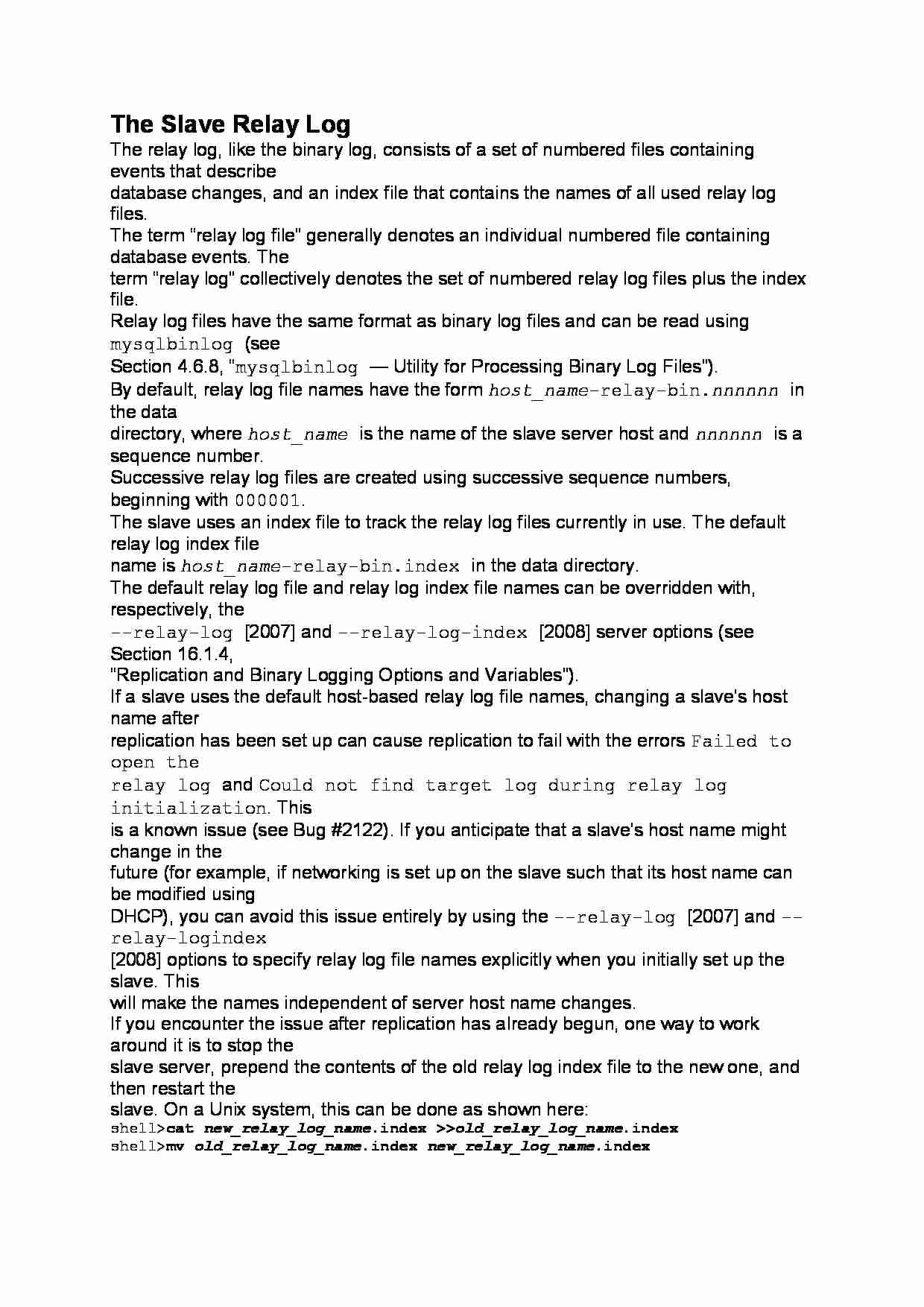
The Slave Relay Log
The relay log, like the binary log, consists of a set of numbered files containing events that describe
database changes, and an index file that contains the names of all used relay log files.
The term “relay log file” generally denotes an individual numbered file containing database events. The
term “relay log” collectively denotes the set of numbered relay log files plus the index file.
Relay log files have the same format as binary log files and can be read using mysqlbinlog (see
Section 4.6.8, “mysqlbinlog — Utility for Processing Binary Log Files”).
By default, relay log file names have the form host_name-relay-bin.nnnnnn in the data
directory, where host_name is the name of the slave server host and nnnnnn is a sequence number.
Successive relay log files are created using successive sequence numbers, beginning with 000001.
The slave uses an index file to track the relay log files currently in use. The default relay log index file
name is host_name-relay-bin.index in the data directory.
The default relay log file and relay log index file names can be overridden with, respectively, the
--relay-log [2007] and --relay-log-index [2008] server options (see Section 16.1.4,
“Replication and Binary Logging Options and Variables”).
If a slave uses the default host-based relay log file names, changing a slave's host name after
replication has been set up can cause replication to fail with the errors Failed to open the
relay log and Could not find target log during relay log initialization. This
is a known issue (see Bug #2122). If you anticipate that a slave's host name might change in the
future (for example, if networking is set up on the slave such that its host name can be modified using
DHCP), you can avoid this issue entirely by using the --relay-log [2007] and --relay-logindex
[2008] options to specify relay log file names explicitly when you initially set up the slave. This
will make the names independent of server host name changes.
If you encounter the issue after replication has already begun, one way to work around it is to stop the
slave server, prepend the contents of the old relay log index file to the new one, and then restart the
slave. On a Unix system, this can be done as shown here:
shell cat new_relay_log_name.index old_relay_log_name.index
shell mv old_relay_log_name.index new_relay_log_name.index
... zobacz całą notatkę



Komentarze użytkowników (0)